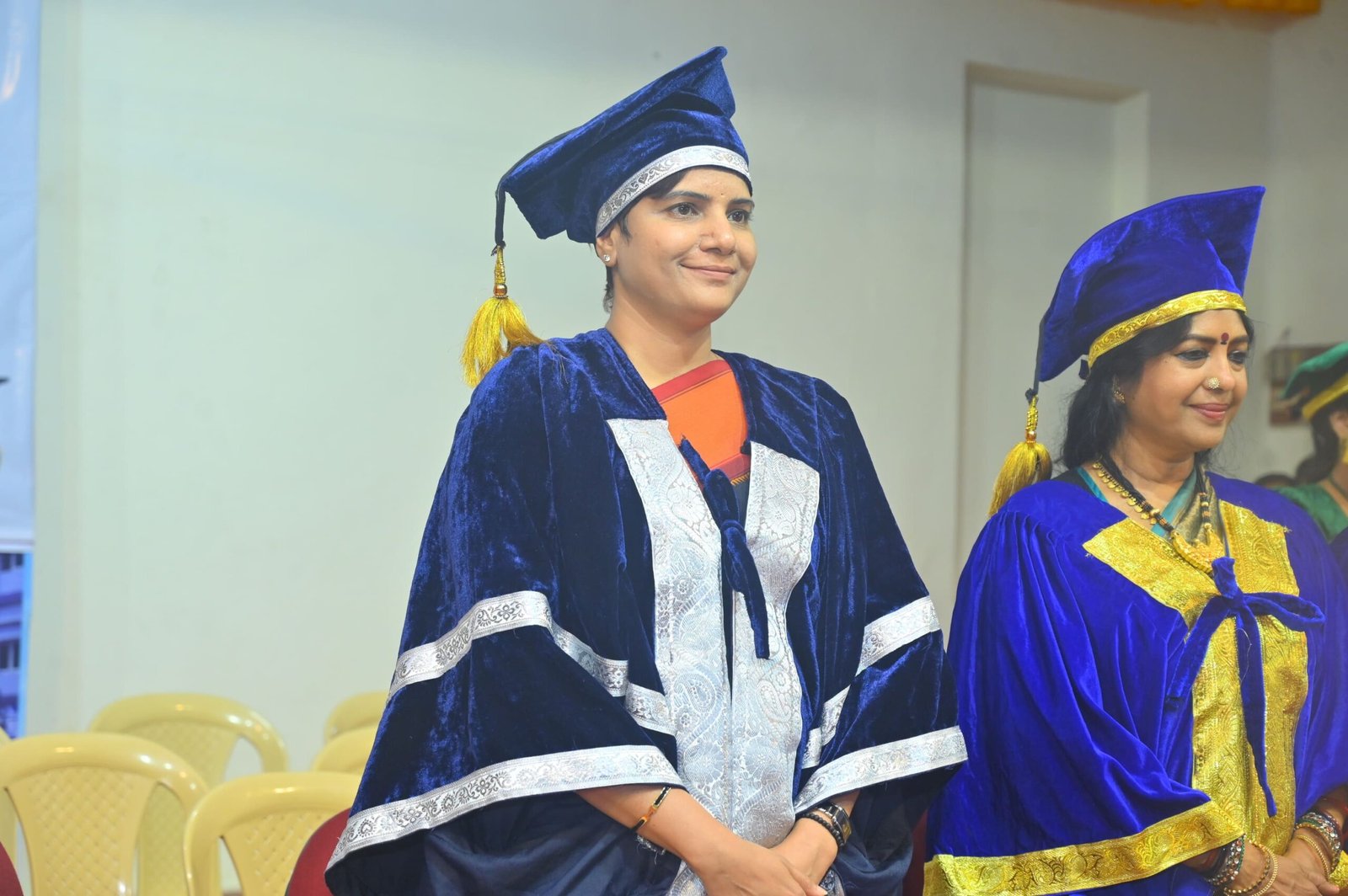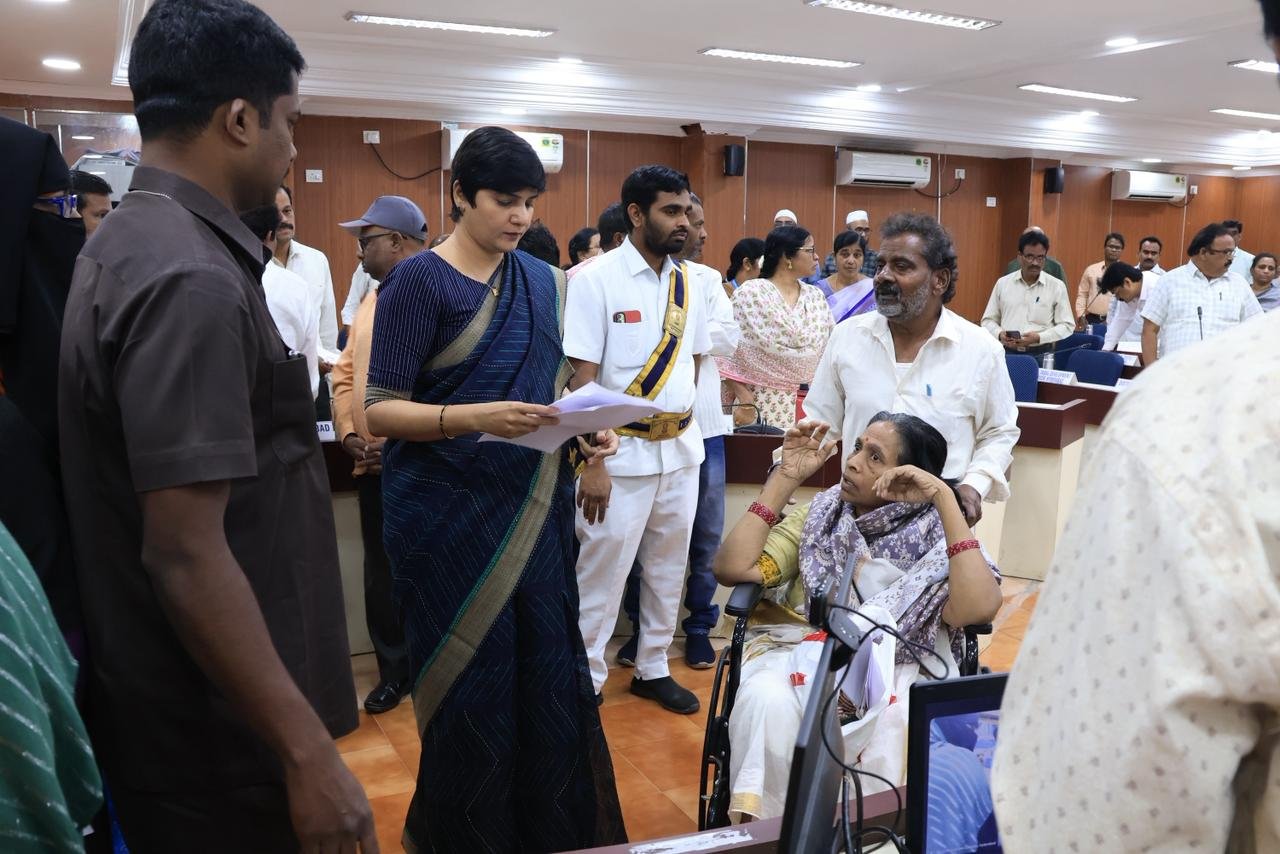How to prepare for the UPSC Civil Services Examination (CSE) is one of the most intellectually demanding and emotionally intense journeys an aspirant can undertake. With a vast syllabus, evolving exam patterns, and fierce competition, success requires unwavering focus, consistent effort, and strategic planning over months, if not years.
However, managing distractions is one of the most underestimated challenges in this process. These distractions can be internal, such as procrastination, overthinking, self-doubt, and mental fatigue, or external, such as mobile notifications, social media, household interruptions, or peer pressure. Left unchecked, even minor distractions can cumulatively derail study schedules and lower performance.
We are designed to help you navigate these distractions with practical, realistic strategies that can be implemented daily. Whether studying from home, at a coaching institute, or preparing independently in isolation, the tips outlined will help you build focus, avoid unnecessary interruptions, and progress steadily toward your UPSC goals.
Understanding the Nature of Distractions
Before you can effectively manage distractions during UPSC preparation, it’s essential to understand their nature and root causes. Distractions aren’t just about phones buzzing or people talking around you; they can arise from within as much as the outside world.
What Are Internal Distractions?
Internal distractions are the thoughts, emotions, and mental habits that originate within the mind and break your concentration. These include procrastination, where you delay tasks even when you know they’re essential; self-doubt, which makes you question your capability to clear the exam; and daydreaming, which often drifts your focus away from study material to imaginary or irrelevant thoughts. These internal blocks are subtle but powerful, reducing efficiency and burnout if not addressed.
What Are External Distractions?
External distractions stem from your surrounding environment. These include social media notifications, constant mobile usage, family interruptions, TV noise, or even frequent calls and chats from friends. These distractions are easier to identify but can be challenging to avoid, especially when preparing at home or sharing your living space.
Why Recognizing Distractions Is the First Step Toward Focus
You can’t manage what you don’t recognize. That’s why self-awareness is the foundation of distraction control. You gain clarity on what’s holding you back by identifying your internal or external triggers. Once you know these interruptions, you can create targeted strategies to reduce or eliminate them, paving the way for deeper focus, longer retention, and more effective preparation.
How To Create a Distraction-Free Study Environment
Your physical environment plays a crucial role in shaping your mental focus. When you surround yourself with a space optimized for productivity, your brain automatically associates that setting with seriousness and concentration. A cluttered, noisy, or disorganized space, on the other hand, invites distraction and restlessness.
Designate a Quiet, Dedicated Study Space
Choose a specific area in your home or hostel solely for studying. This space should be free from distractions like television, heavy foot traffic, or noisy conversations. Avoid using beds or couches for learning, as your mind associates those with rest. A dedicated study table and chair help create a professional and alert posture.
Keep Study Materials Organized
Disorganization can lead to unnecessary mental clutter. Keep your books, notes, pens, and other materials neatly arranged to avoid wasting time searching for resources. Use folders, trays, or digital tools to categorize subjects and topics. An organized space reduces stress and improves focus.
Minimize Noise and Visual Clutter
Unwanted sounds and cluttered desks disrupt concentration. Clear your study table of all unrelated objects. If you’re in a noisy environment, communicate with others about your study hours or use earplugs to limit interruptions. A clean, quiet space promotes deeper engagement with your material.
Use Study-Friendly Tools
Take advantage of technology that enhances focus. Timer apps like Forest, Pomodoro Timer, or Focus To-Do help structure your study sessions with focused work blocks and short breaks. If external noise is an issue, noise-canceling headphones or soft instrumental music can help block disturbances and improve concentration.
Creating a distraction-free study zone is not just about silence, but crafting a space that mentally signals, “This is where I focus and progress.”
Managing Technology and Social Media Distractions
In today’s hyper-connected world, technology can be both a tool and a trap for UPSC aspirants. While it provides access to resources, study materials, and current affairs, it’s also a significant source of distraction, primarily through social media, notifications, and endless scrolling. Managing your digital life is essential to maintaining sustained focus during preparation.
Delete or Mute Non-Essential Apps During Study Hours
Apps like Instagram, Twitter, Facebook, YouTube (non-educational content), and even online shopping platforms can quietly consume hours of valuable time. One of the most effective ways to resist this pull is to delete these apps temporarily or mute their notifications during study hours. This reduces the urge to check your phone or get distracted by alerts constantly.
Use Focus Apps (like Forest, Focus To-Do, or Pomodoro Apps)
Instead of letting your phone distract you, turn it into a productivity tool. Apps like Forest help you stay off your phone by growing a virtual tree during focused study sessions. If you exit the app, the tree dies. Tools like Focus To-Do or any Pomodoro Timer allow you to break your study time into focused intervals (typically 25–50 minutes), followed by short breaks, improving attention and retention.
Allocate Fixed Time Slots for Social Media
It’s unrealistic and often unnecessary to cut off social media altogether. Instead, set designated windows, such as 15 minutes in the morning and evening, to check updates or interact online. This prevents the guilt or anxiety of going “cold turkey” while building digital discipline. Use alarms or reminders to limit your screen time strictly.
Use Social Media for UPSC-Related Content Only
If you must use platforms like YouTube, Telegram, or X (formerly Twitter), ensure they are curated for UPSC-relevant content, such as current affairs, topper interviews, strategy discussions, or motivational lectures. Unfollow or mute non-essential accounts that don’t contribute to your preparation. Social media can be a smart ally if used intentionally.
Controlling your digital environment protects your most valuable preparation asset, uninterrupted focus. Innovative technology use is not about complete avoidance but about conscious management.
Structuring Your Study Schedule For Focus
A strong UPSC preparation strategy doesn’t rely on how many hours you study but on how effectively you manage your time and energy. A structured study schedule provides clarity, reduces decision fatigue, and builds a rhythm that sustains long-term focus. Without a timetable, even the most motivated aspirants risk falling into cycles of burnout or inconsistency.
Importance of a Well-Defined Timetable
Creating a realistic and personalized timetable helps you set clear goals and organize your day around productive study slots. A defined schedule gives you direction, minimizes procrastination, and provides measurable daily targets. Your focus improves automatically when you know precisely what to study and when,
Block Study Hours vs. Flexible Sprints
There are two practical scheduling approaches:
- Block Study Hours: Set fixed blocks (e.g., 9 AM–12 PM, 2 PM–5 PM) for uninterrupted study. This option is ideal for aspirants who prefer consistency and extended focus periods.
- Flexible Sprints: For those who struggle with long hours, breaking the day into shorter, intensive study bursts (like 60–90 minutes) with mini-goals can improve efficiency. These are especially helpful during low-energy days.
Choose the method that suits your energy patterns and learning style, and mix both if needed.
Include Buffer Time for Interruptions
No schedule is perfect—life happens, calls, errands, and emotional lows. Build buffer time into your daily or weekly plan to absorb such unavoidable disruptions without guilt or derailing progress. For example, reserve 30–60 minutes daily as a flexible slot to catch up on spillovers.
Use Techniques like Pomodoro (25-5 or 50-10 Method)
The Pomodoro Technique is a time-tested focus booster. Study for 25 minutes, then take a 5-minute break. After four cycles, take a more extended 20–30 minute break. Alternatively, some aspirants prefer 50-10 splits. These focused intervals train your brain to concentrate intensely while also providing rest, helping prevent mental fatigue and improving long-term retention.
When your study schedule is structured and flexible, it becomes your best defense against distractions and your strongest asset for disciplined UPSC preparation.
Mental Discipline and Mindfulness
While external distractions can be managed through environment and technology, the most persistent obstacles often come from within: mental fatigue, overthinking, self-doubt, and emotional instability. Building mental discipline and practicing mindfulness is crucial for staying grounded, focused, and emotionally resilient during the intense UPSC preparation journey.
Practice Meditation for Focus and Clarity
Even a few minutes of daily meditation or deep breathing can significantly improve concentration, reduce stress, and bring clarity to your thoughts. Meditation trains the mind to return to the present moment, essential for long study hours. Regular practice enhances emotional balance, helping you stay calm during pressure phases like Prelims, Mains, or interviews.
Avoid Overthinking by Journaling or Reflective Breaks
UPSC aspirants often overanalyze their progress or fear future outcomes, which leads to mental clutter. One effective way to break this cycle is by journaling your thoughts. Writing down your worries, lessons from the day, or even gratitude lists helps you process emotions, reflect on growth, and gain mental clarity. Short reflective breaks between study sessions can reset your mindset.
Visualize Success and Reconnect With Your “Why”
Mental discipline grows stronger when you have a clear purpose. Take time regularly to visualize yourself succeeding in writing the Mains, attending the interview, or serving as an IAS/IPS officer. Revisit your original motivation or “why” behind choosing this path. This mental practice strengthens resolve and provides a psychological anchor during tough times.
Monitor Self-Talk and Replace Negative Thoughts
The internal dialogue you maintain shapes your confidence and consistency. Pay attention to how you speak to yourself: are you critical, anxious, or encouraging? When you catch yourself thinking, “I can’t do this,” or “I’m too behind,” consciously replace it with affirmations like “I’m learning every day” or “Progress is more important than perfection.” Positive self-talk reinforces discipline and resilience.
Mastering your mind is not about suppressing thoughts; it is about training your attention, managing emotions, and building mental habits that support your UPSC goals. When nurtured, a focus becomes a focused mind, the most powerful tool in your preparation arsenal.
Balancing Study with Rest and Recreation
One of the most overlooked yet essential components of adequate UPSC preparation is the balance between intense study and meaningful rest. Many aspirants assume that longer hours automatically lead to better results, but quality matters more than quantity. Without proper rest and recreation, you risk burnout, fatigue, and loss of motivation over time.
Take Short Breaks After Study Sessions
The brain needs time to recharge after deep focus. Studying for hours without breaks leads to diminishing returns in comprehension and retention. Incorporating short breaks (5–10 minutes after 25–50 minutes of study) helps restore mental energy and maintain focus across longer durations. These micro-breaks allow the brain to consolidate learning and prevent cognitive overload.
Use Breaks for Light Physical Activities or Hobbies
Breaks should serve as mental refreshers, not mindless distractions. Instead of scrolling through social media or watching random videos, use breaks for light physical activities like stretching, walking, or quick home exercises. Alternatively, engaging in a hobby, such as sketching, playing a musical instrument, gardening, or journaling, can lift your mood and enhance creativity, which helps answer writing and essay sections.
Avoid Passive Entertainment (like binge-watching)
While watching a series or movie during breaks is tempting, passive entertainment like binge-watching can derail your momentum and consume more time than intended. Such activities often leave you mentally foggy rather than refreshed. If you choose to watch something, set a strict time limit and prefer inspirational or light-hearted content that doesn’t emotionally drain you.
Balance is not a luxury; it’s a strategic tool. When rest and recreation are intentionally built into your study routine, they improve productivity, protect mental health, and help you sustain your effort consistently over the long haul.
Handling Family and Social Distractions
While preparing for UPSC, many aspirants study from home or live in close contact with family members. Although emotional support from loved ones can be a great strength, it can also become a distraction if boundaries are unclear. Striking the right balance between staying connected and preserving your study space is key to long-term focus and emotional well-being.
Communicate Study Goals and Boundaries to Family
Often, family members may not fully understand the demands of UPSC preparation unless you explain it clearly. Politely but firmly communicate your study goals, daily routine, and the required concentration level. Let them know how important it is for you to have uninterrupted time during certain hours so they can adjust expectations and offer the proper support.
Schedule Specific Times for Interaction
Instead of completely isolating yourself, which can lead to loneliness and burnout, set fixed times to talk to your parents, siblings, or roommates. For example, a 15–30 minute conversation after dinner can be both refreshing and reassuring. Dedicated interaction slots ensure you stay emotionally connected without sacrificing focus during study hours.
Plan Occasional Visits or Conversations for Emotional Balance
If you’re staying away from home, plan occasional visits or video calls with family. These moments of connection can reduce stress, provide emotional encouragement, and remind you of the larger purpose behind your efforts. Even conversing with someone who genuinely supports your goals can recharge your mental energy.
Stay Close Without Being Constantly Available
Being emotionally close to your family doesn’t mean being constantly accessible. You can say no to non-urgent discussions or chores during study hours. Respectfully draw the line when needed. Remember: availability without structure can dilute productivity. Maintaining focus during study time will benefit everyone by bringing you closer to success.
Healthy Lifestyle to Improve Concentration
Preparing for the UPSC examination is a mental challenge and a physical endurance test. Your brain functions at its best only when your body is nourished, rested, and active. A healthy lifestyle directly influences your ability to focus, retain information, and manage stress, making it a non-negotiable part of adequate UPSC preparation.
Importance of Sleep (6–8 hours daily)
Sleep is essential for memory consolidation, emotional stability, and cognitive clarity. Skipping sleep to study longer may seem productive, but it affects your focus, comprehension, and decision-making ability. Aim for 6–8 hours of quality sleep every night to allow your brain to recharge and perform at its peak.
Eat Mindfully and Regularly
Irregular or poor eating habits can lead to fatigue, sluggishness, and weak immunity. UPSC aspirants should prioritize a balanced diet of fruits, vegetables, protein, and complex carbs. They should also avoid excessive caffeine, junk food, and long meal gaps. Mindful eating ensures sustained energy levels and prevents the brain fog that often comes from unhealthy snacking.
Exercise or Stretch Daily
Even short physical activity sessions like walking, yoga, or stretching can dramatically boost focus and reduce mental stress. Regular movement enhances blood flow to the brain, sharpens concentration, and improves mood. If you can’t commit to long workouts, try incorporating 5–10-minute stretch breaks between study blocks to reset your body and refresh your mind.
Stay Hydrated
Dehydration, even in mild forms, leads to headaches, poor concentration, and lethargy. Ensure you drink enough water throughout the day, especially in warm climates or air-conditioned rooms. Keep a water bottle on your study table as a simple visual reminder to hydrate.
Remember, a healthy body supports a high-performing mind. Treating your body well creates the physical foundation necessary to sustain the rigorous mental effort that UPSC preparation demands.
Staying Accountable and Motivated
UPSC preparation is a marathon, not a sprint. Sustaining motivation and tracking consistent progress over months, sometimes years, requires more than self-discipline. Building a system of accountability and external inspiration can keep you on track during low-energy days and push you forward when self-motivation fades.
Share Your Daily Goals with Someone (study partner, mentor, parent)
Accountability increases commitment. By sharing your daily or weekly study targets with someone you trust, like a mentor, friend, or parent, you create gentle pressure to follow through. This external check-in helps reduce procrastination and reinforces discipline. Knowing that someone knows your goals can often be the extra nudge needed to stay consistent.
Use Study Groups with a Clear Structure
Well-structured study groups can be powerful. They offer peer support, knowledge sharing, and motivation through healthy comparison. However, the key is a structured group that meets regularly with defined topics, time limits, and shared progress reviews, is far more effective than casual chats or unplanned discussions. Choose study partners who uplift your momentum, not drain it.
Watch UPSC Topper Interviews or Motivational Content
During inevitable phases of self-doubt, watching interviews of UPSC toppers or motivational talks can rekindle your belief in the journey. These stories often offer practical strategies, real struggles, and inspiration that feel relatable. Even watching a short video of someone who succeeded through perseverance can reignite your inner drive.
Reward Yourself After Completing Goals
Positive reinforcement is a simple but effective tool. When you achieve a specific target, such as completing a mock test, finishing a complex topic, or sticking to your timetable, reward yourself with something small but enjoyable. It could be your favorite snack, a short walk, or 30 minutes of leisure reading. These rewards signal progress to your brain and keep the journey emotionally rewarding.
Motivation fluctuates, but systems of accountability and periodic rewards can stabilize your progress. Combined, they help you stay committed, measure effort, and celebrate every small victory on your path to success.
Long-Term Strategy to Sustain Focus
UPSC preparation is not about short bursts of intensity but about sustained, focused effort over a long period. To maintain momentum without burnout or overwhelm, aspirants must approach preparation with a clear, long-term mindset. The key lies in setting achievable goals, reviewing progress, and building habits that support consistency.
Set Realistic Daily, Weekly, and Monthly Goals
Rather than aiming for vague or overly ambitious study targets, break your preparation into structured time frames, daily goals for immediate focus, weekly targets for cumulative progress, and monthly milestones for bigger revisions or mock tests. This layered planning helps you track growth while avoiding panic and last-minute stress.
Review Your Progress Regularly
Every week or month, take time to reflect: What did you cover? What worked well? Where did you struggle? Regular reviews help you identify patterns, recalibrate your timetable, and align with your goals. This practice keeps your preparation adaptive, self-aware, and improvement-focused.
Accept Off-Days Without Guilt
Not every day will be perfect, and that’s okay. There will be days when you feel unwell, mentally exhausted, or simply unfocused. The important thing is to accept these moments with compassion without letting guilt spiral into demotivation. Take a break, reset, and return stronger. A one-off day doesn’t define your journey.
Stay Consistent Over Perfect
Perfection is not the goal; consistency is. Studying six focused hours daily for months will take you further than random 14-hour sessions followed by burnout. Show up daily, even just for a few productive hours. Over time, this steady effort builds the depth, confidence, and mental stamina required to clear UPSC.
Long-term focus is a skill you build with routines, reflection, and resilience. When you approach the UPSC journey with this mindset, distractions lose power, and your commitment becomes unshakable.
Conclusion
Distractions are inevitable in the journey of UPSC preparation, and distracy is not unbeatable. Whether it’s the lure of social media, self-doubt, family interruptions, or mental fatigue, every aspirant faces these challenges in one form or another. The difference lies in how you respond to them.
You don’t need to eliminate every distraction; you need to manage them with awareness, structure, and discipline. Each strategy contributes to a focused, sustainable preparation routine, from designing a distraction-free study environment and managing your digital space to maintaining a healthy lifestyle and staying mentally resilient.
Remember, there is no one-size-fits-all solution. What works for one aspirant may not work for another. That’s why it’s important to experiment, adapt, and personalize your strategies until you find a rhythm that suits your learning style, environment, and energy levels. Consistency, self-awareness, and innovative, intelligent management are your strongest allies. You move steadily toward becoming a civil servant when you prepare with clarity and discipline despite occasional distractions.
How To Prepare For UPSC Without Distractions: FAQs
What Are The Most Common Distractions Faced By UPSC Aspirants?
Aspirants commonly struggle with internal distractions like procrastination, overthinking, and self-doubt, as well as external distractions such as social media, phone notifications, family interruptions, and noise.
How Can I Create A Distraction-Free Study Environment At Home?
To maintain focus, design your study area, keep your organization and materials visually and audio clutter-free, and use productivity tools like noise-canceling headphones or Pomodoro apps.
Is it Necessary To Delete Social Media Apps During UPSC Preparation?
Yes, temporarily deleting or muting non-essential apps during study hours can significantly reduce digital distractions and help preserve mental clarity.
How Do I Use The Pomodoro Technique Effectively For UPSC Studies?
Study for 25–50 minutes in a focused session, followed by a 5–10 minute break. After four cycles, take a 20–30 minute break to avoid fatigue and improve retention.
Can Structured Study Groups Improve My Focus?
If the group has a clear structure, defined study goals, and limited time slots, it can enhance accountability, clarity, and mutual motivation.
How Much Sleep Should I Get During UPSC Preparation?
Aim for 6–8 hours of quality sleep each night. It helps with memory consolidation, emotional regulation, and overall cognitive performance.
How Can I Balance UPSC Preparation With Family Expectations?
To maintain harmony and focus, clearly communicate the study schedule and goals, set respectful boundaries, and allocate fixed time for family interactions.
Should I Reward Myself After Completing Study Goals?
Yes, giving yourself small rewards for achieving daily or weekly goals boosts motivation and reinforces positive study habits.
Is It Okay To Take Breaks While Preparing For UPSC?
Absolutely. Short breaks during study sessions are essential to refresh the mind and prevent burnout. Use breaks wisely for physical movement or light hobbies.
How Can I Stay Motivated Over The Long UPSC Preparation Journey?
Revisit your “why,” watch topper interviews, track your progress regularly, and celebrate small milestones to stay emotionally engaged and mentally strong.
What Role Does Mindfulness Play In Avoiding Distractions?
Mindfulness practices like meditation and journaling help manage internal distractions, reduce stress, and build long-term mental discipline.
How Can I Avoid Overthinking And Self-Doubt During Preparation?
Journaling, reflective breaks, and talking to mentors or peers can offload mental clutter and reinforce confidence.
Can I Use Social Media Positively During UPSC Preparation?
Yes, follow UPSC-specific channels, current affairs groups, or motivational pages. But set strict time limits and avoid passive scrolling.
How Often Should I Review My Progress?
Weekly or bi-weekly reviews are ideal. They help you identify what’s working, adjust your study plan, and focus on your targets.
What If I Miss A Study Day Or Have A Low-Productivity Day?
Accept it without guilt. Everyone has off days. Rest, reset, and return with renewed focus. One bad day won’t define your entire journey.
Is Playing Sports Or Engaging In Hobbies Helpful During Preparation?
Light physical activities or hobbies reduce stress, improve mood, and refresh the mind, enhancing overall focus and well-being.
What Should I Eat To Improve My Study Efficiency?
To maintain physical and mental energy, eat balanced meals with whole foods, avoid junk food and excessive caffeine, and stay hydrated.
How Can I Train My Mind To Stay Consistent?
Build a routine, use visual reminders of your goals, limit distractions, and rely on habits over motivation to stay on track daily.
Can Talking To Family Or Mentors Help During Low Moments?
Yes, trusted conversations can provide reassurance, perspective, and renewed clarity during emotional dips or phases of confusion.
Why Is Consistency More Important Than Studying For Long Hours Occasionally?
Consistent daily study builds retention, reduces stress, and leads to compounding progress, while occasional long hours often result in burnout.







